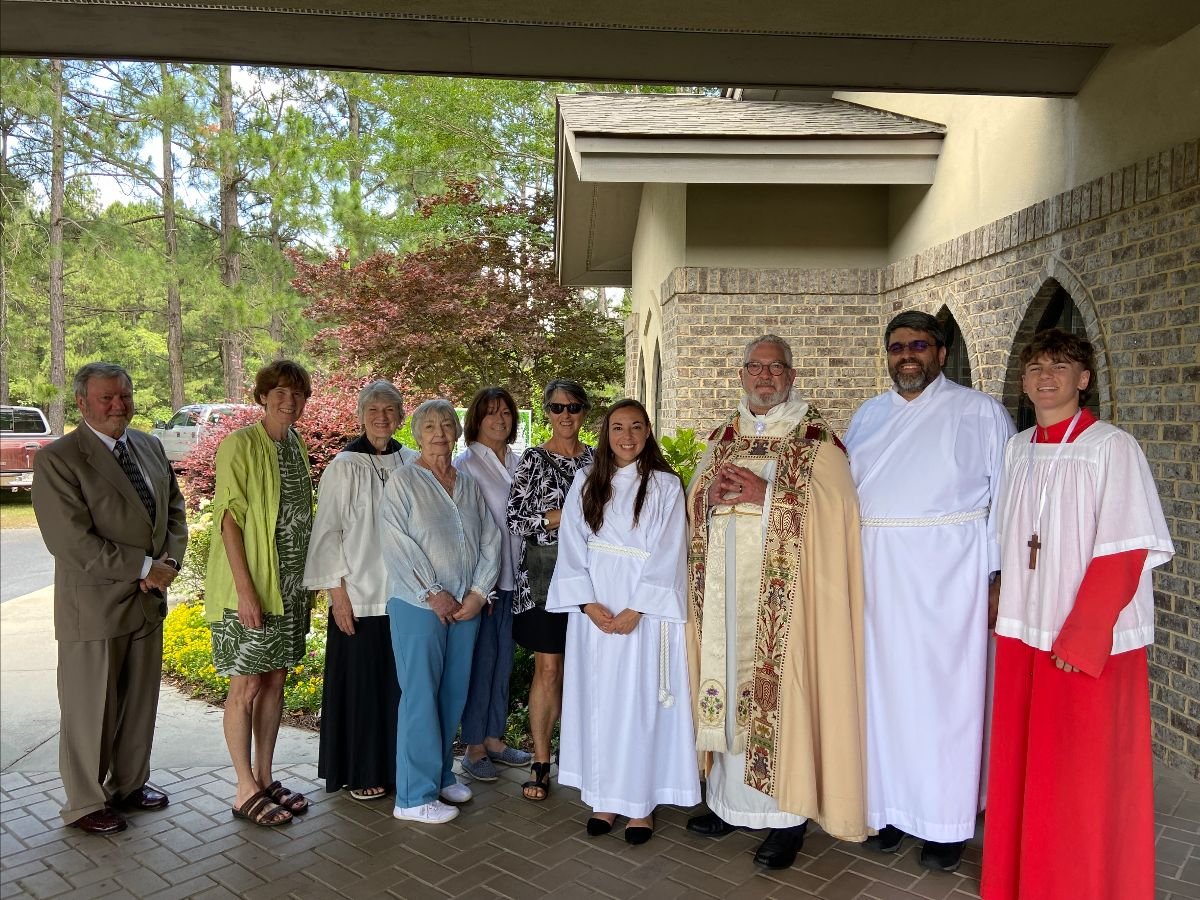Nonprofit Helps Church in Statesboro Secure Solar Through Georgia BRIGHT Program
Statesboro, Ga. — Last month, with the help of Georgia Interfaith Power and Light (GIPL), Trinity Episcopal Church in Statesboro, Georgia became the first faith community in the state to sign a solar energy procurement agreement (SEPA) with Georgia BRIGHT—a first-of-its-kind solar program designed to help low to moderate-income communities cut power bills and carbon emissions.
The church entered GIPL’s Solar-Wise program in 2020, feeling a faithful call to better steward Sacred Earth. They worked with GIPL program staff to explore different solar options, with GIPL assisting in the initial assessment and acting as a liaison with various installers. Most plans though were too expensive… that is until Georgia BRIGHT came along.
“When GIPL told us about Georgia BRIGHT and showed us how much we could save, I was skeptical at first,” says Fr. Charles Todd, Rector at Trinity Episcopal. “It seemed too good to be true. However, we talked to their team, got to know the Georgia BRIGHT people, saw their model, and learned that we really could get solar and save money. We could not be more excited!”
Georgia BRIGHT is funded by the national nonprofit Capital Good Fund. Capital Good Fund takes advantage of tax credits, grants, and bulk purchase discounts to help lower the cost of solar to homeowners and nonprofits like Trinity Episcopal. With Georgia BRIGHT, not only do customers lower their power bills and reliance on fossil fuels, they also hedge against rising energy prices and become models of resilience for their communities. Over the next 25 years, Trinity Episcopal will save $60,560, and offset 705 tons of carbon dioxide (78 percent of their total energy consumption).
“We’re thrilled to see Trinity Episcopal finally get solar,” says Hannah Shultz, GIPL Program Director. “This has been a long time coming and we hope it will allow them to invest more resources into mission and ministry with their community.”
“Previously the benefits of solar were available for-profit entities,” says Capital Good Fund founder and CEO Andy Posner, “Thanks to President Biden’s Inflation Reduction Act, we are helping change the game and cut energy burden across the state!”
###
Georgia Interfaith Power and Light (GIPL) is a 501(c)3 nonprofit organization that inspires and equips communities of faith to organize, implement practical climate solutions, and advocate across Georgia on issues of climate change, environmental justice, and community resilience. An affiliate of the national Interfaith Power and Light movement, GIPL envisions a Georgia where all people can flourish in a healthy environment, a stable climate, and resilient communities.
Capital Good Fund is a nonprofit, U.S. Treasury-certified Community Development Financial Institution that uses financial services to tackle poverty and environmental injustice in America. Capital Good Fund created the Georgia BRIGHT solar leasing program that offers residential and commercial rooftop solar and solar plus battery storage leases and power purchase agreements to homeowners making less than $100,000 a year and mission-aligned organizations across the state. It also offers solar financing, low-interest loans, and one-on-one financial coaching in eleven states, including Georgia. Since their founding in 2009, they have financed more than 14,000 loans and leases totaling over $44 million with a 97% repayment rate and graduated over 2,000 people from their Coaching program. Learn more at GoodFund.us.
GIPL Program Director, Hannah Shultz (middle, white robe), with Fr. Charles Todd and Trinity Episcopal's Green Team.
JAY HORTON
Communications Manager
Georgia Interfaith Power & Light
Phone: 540.421.6968
Email: jay@gipl.org


